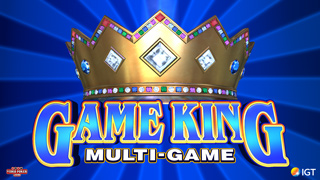random independant events
-
Frank Kneeland
- VP Veteran
- Posts: 762
- Joined Forum: February 2, 2011
- View Player Page
Re: random independant events
Perhaps this is a non sequitur
perhaps it is not. In the book I read recently "The Drunkards Walk" it
referenced an interesting study done into human pattern recognition.
Scientists set two buttons to give the subjects a reward if they pushed
the correct button. Only one button at a time was enabled to give the
reward, and they alternated which button was correct randomly with the
left button being correct 75% of the time and the right button getting
the remaining 25%. Rats scored an average of 70% correct pushes, as they quickly learned that the left button was right more often.ALL
the Human test subjects tried to guess at the non-existent pattern, and
NONE of them merely opted for always pushing the left button. The BEST
any of the human test subjects did was around 55% correct. Similar tests
have been conducted and in all cases rats and other non-primates like
pigeons score better than humans. The problem would seem to be that
humans perceive their pattern recognition as an "all the time asset" and
can't switch it off when it's a deficit...like when there is no
pattern.Oh, in the primary test they did not tell the
participants that the buttons alternated randomly. In a later re-test
they did, but most of the subjects still refused to believe the
scientists and continued to look for patterns even when they had been
told there were none. Some of the subjects requested to be allowed to
continue doing the test, because they felt they were close to figuring
out the pattern. These subjects left convinced the scientists were
wrong, and that there really was a pattern, even though their best
scores had been beaten by the weakest rats.If we have a hammer all problems become nails.In another study scientists simply wanted to see if people could recognise series of random coin tosses. The error rate was about 80%. 78% of the non-random series were identified as random, and 82% of the truly random series were thought to be man made.People almost perfectly perceive random events to be non-random and visa versa.~FK
perhaps it is not. In the book I read recently "The Drunkards Walk" it
referenced an interesting study done into human pattern recognition.
Scientists set two buttons to give the subjects a reward if they pushed
the correct button. Only one button at a time was enabled to give the
reward, and they alternated which button was correct randomly with the
left button being correct 75% of the time and the right button getting
the remaining 25%. Rats scored an average of 70% correct pushes, as they quickly learned that the left button was right more often.ALL
the Human test subjects tried to guess at the non-existent pattern, and
NONE of them merely opted for always pushing the left button. The BEST
any of the human test subjects did was around 55% correct. Similar tests
have been conducted and in all cases rats and other non-primates like
pigeons score better than humans. The problem would seem to be that
humans perceive their pattern recognition as an "all the time asset" and
can't switch it off when it's a deficit...like when there is no
pattern.Oh, in the primary test they did not tell the
participants that the buttons alternated randomly. In a later re-test
they did, but most of the subjects still refused to believe the
scientists and continued to look for patterns even when they had been
told there were none. Some of the subjects requested to be allowed to
continue doing the test, because they felt they were close to figuring
out the pattern. These subjects left convinced the scientists were
wrong, and that there really was a pattern, even though their best
scores had been beaten by the weakest rats.If we have a hammer all problems become nails.In another study scientists simply wanted to see if people could recognise series of random coin tosses. The error rate was about 80%. 78% of the non-random series were identified as random, and 82% of the truly random series were thought to be man made.People almost perfectly perceive random events to be non-random and visa versa.~FK
-
New2vp
- Video Poker Master
- Posts: 1887
- Joined Forum: September 11, 2006
- View Player Page
Scientists set two buttons to give the subjects a reward if they pushed
the correct button. Only one button at a time was enabled to give the
reward, and they alternated which button was correct randomly with the
left button being correct 75% of the time and the right button getting
the remaining 25%. Rats scored an average of 70% correct pushes, as they quickly learned that the left button was right more often.ALL
the Human test subjects tried to guess at the non-existent pattern, and
NONE of them merely opted for always pushing the left button. The BEST
any of the human test subjects did was around 55% correct. Similar tests
have been conducted and in all cases rats and other non-primates like
pigeons score better than humans. The problem would seem to be that
humans perceive their pattern recognition as an "all the time asset" and
can't switch it off when it's a deficit...like when there is no
pattern.I think the author may have missed a valuable insight.This obviously means that the behavior of rats is more predictable than is the more complex behavior of humans.As an anecdotal example, take this forum. It is much easier to predict what the rats are going to post. The humans, not as much.
-
Frank Kneeland
- VP Veteran
- Posts: 762
- Joined Forum: February 2, 2011
- View Player Page
[QUOTE=Frank Kneeland]Scientists set two buttons to give the subjects a reward if they pushed
the correct button. Only one button at a time was enabled to give the
reward, and they alternated which button was correct randomly with the
left button being correct 75% of the time and the right button getting
the remaining 25%. Rats scored an average of 70% correct pushes, as they quickly learned that the left button was right more often.ALL
the Human test subjects tried to guess at the non-existent pattern, and
NONE of them merely opted for always pushing the left button. The BEST
any of the human test subjects did was around 55% correct. Similar tests
have been conducted and in all cases rats and other non-primates like
pigeons score better than humans. The problem would seem to be that
humans perceive their pattern recognition as an "all the time asset" and
can't switch it off when it's a deficit...like when there is no
pattern.I think the author may have missed a valuable insight.This obviously means that the behavior of rats is more predictable than is the more complex behavior of humans.As an anecdotal example, take this forum. It is much easier to predict what the rats are going to post. The humans, not as much.
[/QUOTE]Wow, that's not what I expected you to say
-
New2vp
- Video Poker Master
- Posts: 1887
- Joined Forum: September 11, 2006
- View Player Page
Wow, that's not what I expected you to sayLikewise!
-
jim18
- Senior Member
- Posts: 118
- Joined Forum: March 4, 2011
- View Player Page
I think I still have a sense of humor. And the following will support the claim.Do I care if some people wish to study the behavior of rats? Perhaps the folks that have an interest in rats, have a genetic connection to the rat family. If people want to marry rats and VP, this is not my problem!Someone that should know better made the claim that if a person owns a hammer, then all problems are nails. OK, the rat tester may think this way, but I find this to be silly. I own more than three hammers, and I do not think of problems as nails. If someone wants to marry hammers and VP, that is not my problem!!With my sense of humor, I should be allowed to marry the hammer and the rats. How many people would be left in NV if it were legal to use a hammer on the NV rats? Get out your slide rules, check your permutation and combination calculations, divide pi by the formula, E=MCsquared. The result will be a random number. Enter that random number in your randomize number formula. Take date and time into consideration too.What is the result? Obviously, you get a nail bitting, rat killing “thingy” that will serve you well in selecting which machine to play. And with lots of luck, you will play like a rat, and nail a jackpot, before the RNG hammer slams you into broke status.So, is it humanities darkest hour when humans try to solve a problem under test conditions and fail, then ask to try again, only for the pleasure of solving some meaningless problem? Compare this sanity to that of the math wizards that put hammers and rats on pedestals. At least they still put a smile on my face. They have been trained to out perform the rats, and deal an unbelievable 2,000 hands per hour on VP. Has anybody seen the movie”King Rat”?Since we have all read Steinbach’s book “Of Mice and Men”, we now know that there are rats, there are men, and god help us, there are combinations of both.The beauty of the RPG is that you never know what the next posting will bring. I have tried to be funny, and at the same time remain connected to the original posting. Obviously the original posting dealt with hammers and helping people to be more rat like, right?
-
Eduardo
- Video Poker Master
- Posts: 2967
- Joined Forum: August 31, 2006
- View Player Page
-
feline57
- Senior Member
- Posts: 114
- Joined Forum: October 24, 2006
- View Player Page
Eduardo What The... Is that photo for
-
Eduardo
- Video Poker Master
- Posts: 2967
- Joined Forum: August 31, 2006
- View Player Page
Someone will get it (a response to something in jim18's post)
-
faygo
- Video Poker Master
- Posts: 2925
- Joined Forum: January 9, 2007
- View Player Page
It is rather obvious.
-
Frank Kneeland
- VP Veteran
- Posts: 762
- Joined Forum: February 2, 2011
- View Player Page
I thought Jim's post was very funny.I should say that in my metaphor, "If you have a hammer all problems become nails", The "hammer" was looking for patterns and the "all problems" was things that include randomness and have no patterns other than those we concoct in our own minds. The "become nails" was representational of trying to find patterns in random events even when doing so it not helpful.As the Church of the Flying Spaghetti Monster has pointed out, it is dangerous to draw correlations when a plausible theory of causation is not present. They illustrated this best when they correctly pointed out that there is a direct inverse correlation between global climate change and the number of sea faring pirates.references: http://seanbonner.com/blog/archives/001 ... Monster~FK























































